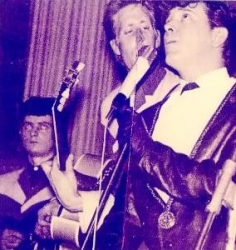Tips for composers
 You need to make music regularly, without waiting for the so-called inspiration. You should not depend on it, let it depend on you. And the more regularly you compose, the more often and longer the inspiration will be with you.
You need to make music regularly, without waiting for the so-called inspiration. You should not depend on it, let it depend on you. And the more regularly you compose, the more often and longer the inspiration will be with you.
It is best to write (it is to write, and not to engage in orchestration or any transpositions) with a fresh mind, that is, in the mornings and around lunchtime. After that, you can also do orchestration, as this, in any case, requires less effort of creative thought.
Do not be afraid to immediately record musical thoughts. Firstly, in multiple variation without fixing on paper there is a risk of losing the original thought, and secondly, it is always easier to change fixed on paper without fear of wandering into the impassable jungle – you have the first option.
When you first compile a musical construct, always try to think in the same way both horizontally and vertically. Bending on either of these sides leads either to a gray melody, or to wretched harmony.
The main thing is that composing music does not become boring for you. Sources of inspiration can be found anywhere: in listening to music, in contacts with musicians, in handy stationery, in beautiful and clean music paper.
Never try to write right away. The less you fear to make a mistake, the more freedom in creativity you will achieve.
In order to achieve ease in writing musical material, try to remove the brakes while composing. In some cases, it may seem that platitudes will follow one after another, but this is not so. It all depends on the degree of your intellectual development. A similar effect happened when, after the completion of the harmony course at the conservatory, we, as students, were allowed to do everything in harmonic tasks, including things that should not be: such as parallel quints, extended intervals, wrong separations, etc. just could not do it. It is “in the blood.”
When composing a song on someone else’s text, the work must begin with an analysis of the text itself. Rhymes should be clear and simple (if the text is rhymed), the rhythm should exactly match in all stanzas both in the number of syllables and in the stress. Be sure to determine the semantic climax (do not forget about the proportionality of the “golden section”). And most importantly – you should immediately see the form of the future song: where is the verse, where is the chorus, how many of them, in what sequence. If something drops out of the listed items or is clearly non-standard, it should have its own need and logic of form or development. The songwriter is also valuable because all these important points are observed and relieved by the composer from the need to rethink and think out something.
When composing a melody of a song, I advise you to use the technique of writing a dictation on solfeggio: write in all the bars at once (that is, in all the lines of the text, not in order, but fragmentary).
It often happens that some line of the text of the song being composed is “stubborn” and does not want to be composed. The case will definitely move if you go to another similar piece of text (couplet or chorus) with the same piece of music.
When composing with the next “plug”, I advise you to use the technique of classes in music schools: the more often and shorter, the more productive. That is, if you return to your musical material every hour for 3-5 minutes, you will very soon get out of this musical dead end.
If you feel that some musical fragment of your composition can be thrown away, or you can leave it, then it is better to throw it away.
If you try to follow all or only some of these tips, then I guarantee, based on my own experience, that your work as a composer will increase quantitatively and qualitatively many times over.




